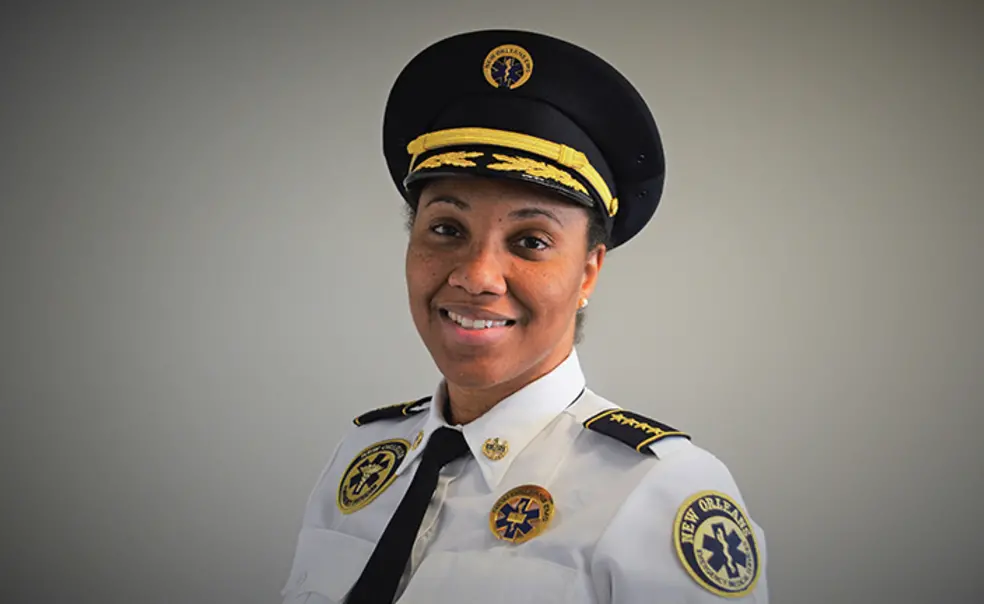EMS Director Emily Nichols ’99 Treats COVID Like Walking Into Fire
“We are reminding everyone that ‘it is OK to not be OK’”
Emily Nichols ’99 was named director of New Orleans Emergency Medical Services in 2018.
As an emergency-department physician in New Orleans, I quickly accepted that contracting COVID-19 was an occupational hazard I was unlikely to avoid. My greatest fear was how my husband (who is also an ED physician) and I would keep from passing it on to our 5-year-old daughter and my 75-year-old mother. However, I also serve as director of New Orleans Emergency Medical Services. Knowing that my 160-plus teammates have the same feelings and concerns is a heavy emotional load to bear as an employer.
For all the care that I provide in the emergency department, I recognize that EMTs and paramedics do the same thing inside patients’ homes and in the streets. I (and we, the community) often take this for granted. My employees are walking into COVID-covered spaces each day — I call it “the COVID fire.” Some of our first patients with COVID-19 had symptoms that were not reported by the CDC until several weeks later.
There was so much that no one understood about this disease early on; each day brought new information and evolving guidelines. Our agency quickly implemented changes to keep our first responders protected — we now assume every patient is infected with COVID-19, and we wear PPE on all medical calls regardless of symptoms. We start interviewing patients and families before we cross the threshold into their homes, and we’ve modified seemingly simple procedures like giving oxygen to prevent viral spread during transport to the hospital. We’ve trained our providers how to show compassion while wearing equipment like respirators or “gas masks” some have only seen in the movies. Yet it remains difficult to tell family members that they can’t ride in the ambulance with their loved one for risk of transmission — there is no easy way to relay that message.
Almost half of my employees have become sick since our first known case March 9. Fortunately, no employee has succumbed to this disease, but we are all one or two degrees separated from someone who has. The number of prehospital cardiac arrests in New Orleans for April 2020 was three times the number for 2019 — many individuals never make it to hospital and are pronounced in their homes by my paramedics. I am scared yet confident this will affect the mental well-being of our nation’s first responders. We are giving each other lots of virtual hugs but also reminding everyone that sometimes “it is OK to not be OK.” Local businesses and people are supporting us in so many ways — the outpouring of kindness and good food makes each day a little lighter.
The first responders in New Orleans are some of the best in the world. We have endured so much in the last 15 years, but this is the first disaster we have dealt with where we cannot see it or predict its course. Our EMTs and medics risk their lives for the sake of completing their mission: “So others may live.” My respect for prehospital medicine grows more and more every day. This empowers me to wake up each morning and lead.
PAW reached out to alumni who are on the front lines of the COVID-19 crisis or are affected by it in different ways. Read their essays here. Write to us at paw@princeton.edu with your own story.










No responses yet